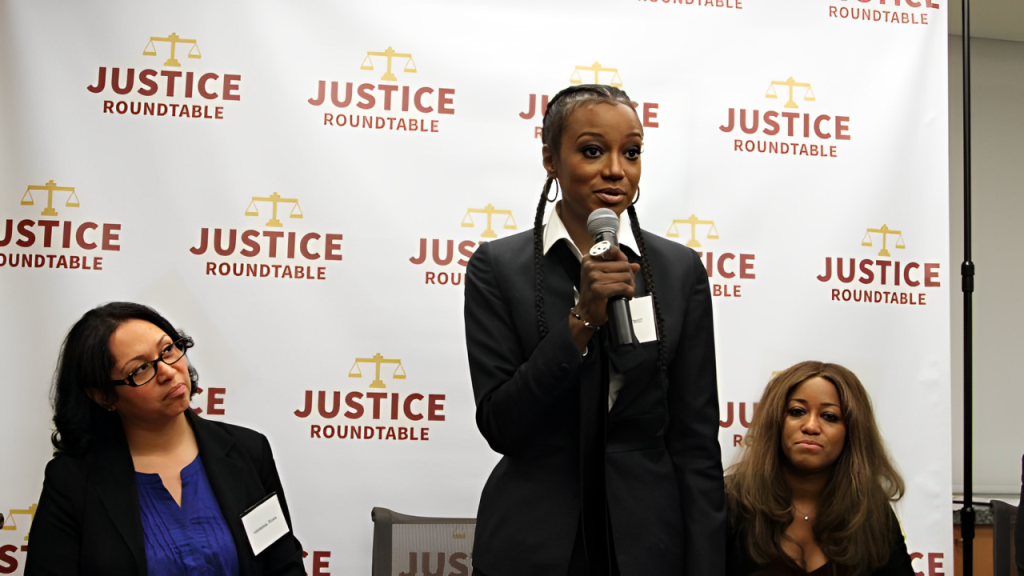On January 19, 2025, as President Biden wrapped up his historic presidency, he made a significant move by using his clemency power. He pardoned five people and commuted the sentences of two others, including Michelle West, whose life sentence will officially end in February 2025.
Michelle West’s case has sparked significant attention. Currently serving a life sentence for crimes committed between 1987 and 1993, her story involves a long, complex legal journey. Let’s take a closer look at the events that led to her imprisonment and the commutation of her sentence.
What Were the Crimes Michelle West Was Involved In?
In 1994, Michelle West was handed a severe sentence: two life terms plus an additional 50 years. This effectively meant she was facing a death sentence behind bars for her role in several drug-related crimes that took place in southeast Michigan.
West was charged with drug conspiracy, money laundering, and aiding in a murder connected to the drug trade. The murder was committed by someone else, who was granted immunity and only served 15 months in prison.
Before her conviction, West had no criminal history. She was a first-time offender with no past record of violent behavior. However, she was swept up in a large federal investigation involving drug networks in Detroit, leading to her being convicted of crimes she did not personally commit.
Her federal public defender, Amanda Bashi, explained in an interview with Michigan Public that West was not the mastermind of the drug network or its violent activities. Rather, West’s role was minor, and she was simply linked to individuals directly involved in the crimes.
Despite the fact that her involvement was minimal, West was convicted and sentenced to two life terms. Bashi noted that West’s case is a cautionary tale about the dangers of mandatory minimum sentencing, which has led to harsh penalties for many first-time offenders.
How Did Michelle West End Up Serving a Life Sentence?
The investigation into the drug network was part of a major crackdown on criminal activity in Detroit during the late 1980s and early 1990s. Michelle West was connected to the case, even though her actions were not directly tied to the most violent crimes. Despite being a first-time offender with no previous criminal behavior, she faced a sentence that many considered disproportionate to her role in the crimes.

Federal laws at the time mandated harsh sentences for drug-related offenses, especially those involving conspiracy and money laundering. Even though West’s involvement was peripheral, she received a sentence that could only be described as life-altering. She spent over 30 years behind bars for crimes committed in her early adulthood, with little chance of parole.
The case has since become a symbol for those advocating for sentencing reform, particularly for individuals who were sentenced under harsh and inflexible laws.
President Biden’s Commutation of Michelle West’s Sentence
As President Biden’s time in office came to an end, he took action to commute the sentences of two individuals, including Michelle West. His decision was rooted in the belief that America should offer second chances, especially when an individual has demonstrated genuine transformation and growth.
In a statement accompanying the commutation, President Biden praised Michelle West for her “extraordinary rehabilitation and personal transformation” over the years. He highlighted how West’s clemency petition had garnered widespread support from various groups, including civil rights organizations, women’s rights groups, former fellow inmates, and lawmakers.
The National Council of Incarcerated and Formerly Incarcerated Women and Girls, the Battered Women’s Justice Project, and Families Against Mandatory Minimums (FAMM) were just some of the organizations that rallied behind her. U.S. Rep. Rashida Tlaib, along with other lawmakers, was also vocal in supporting West’s release.
Biden also pointed out that West’s supporters viewed her as a role model for redemption. He emphasized that she had spent over three decades rehabilitating herself in prison and was seen as an example of someone who had turned their life around.
Her release is expected to take place in the coming weeks, with her sentence officially ending in February 2025. Once released, Michelle West plans to live with her daughter and start a new chapter of her life.
Michelle West’s Legacy and What Comes Next
Michelle West’s case is a powerful example of the potential for personal growth and transformation. After spending over 30 years in prison, West’s supporters believe she has turned her life around, becoming a model of rehabilitation.
Her case has raised important questions about the justice system, particularly around mandatory minimum sentencing and the potential for reform. Many advocates argue that West’s sentence was disproportionately harsh and that her case illustrates the need for changes in sentencing laws, especially for first-time offenders.
As Michelle West prepares for her release, her story serves as a reminder of the importance of second chances, the power of personal transformation, and the need for a fairer justice system that allows individuals to redeem themselves.
Disclaimer: This article has been meticulously fact-checked by our team to ensure accuracy and uphold transparency. We strive to deliver trustworthy and dependable content to our readers.

